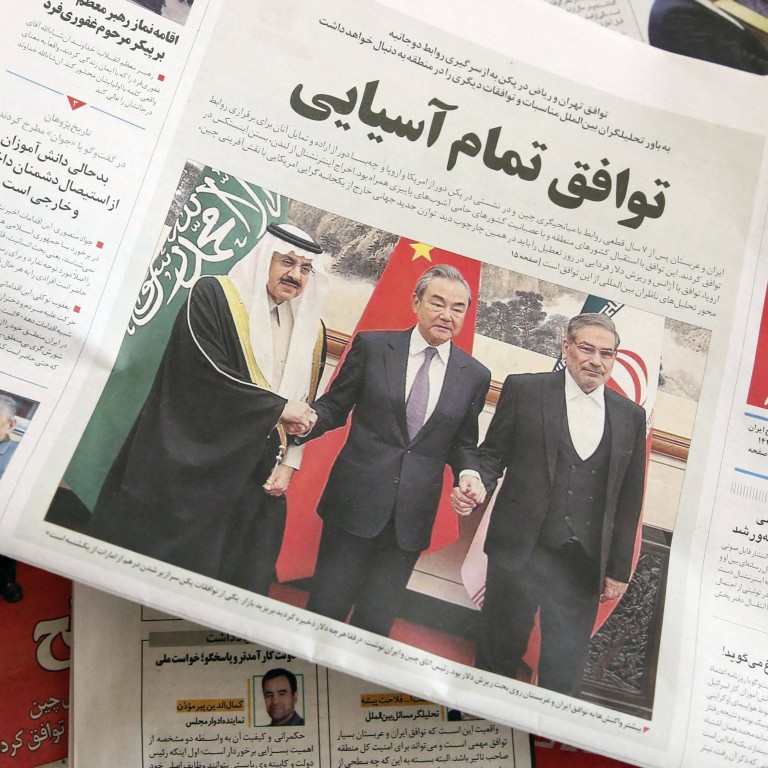
Mideast peace deal a taste of the challenges Xi’s third term faces
- While the president is the face of continuity, his team includes faces of the future. Together they will have to guide China through the next stage of its rise to superpower
The importance of the leadership of the world’s most populous nation and second-largest economy does not normally warrant amplifying. But Friday’s endorsement by the National People’s Congress of Xi Jinping’s third term as president of China has added historical significance.
Freed by the passage of time from the legacy of predecessors, he has hand-picked his party and government leadership team. It will take on unprecedented challenges at home and abroad which will define the next stage of China’s rise to be a superpower.
Friday will also be remembered for a stunning revelation with implications for future global governance. China has reinforced its credentials as a responsible major power by brokering a diplomatic peace deal between estranged Mideast powers Iran and Saudi Arabia, in which Xi had a guiding hand. This showcases China’s peace efforts, and follows its proposals for ending the war in Ukraine through negotiations and dialogue.
Xi is China’s most powerful leader for decades. But foreign media characterisation of his third term as a further consolidation of his power is a simplification. The world is engulfed in geopolitical tension and complexity. The Middle East deal brokered by China is telling of its potential responsible role and positive impact. In that respect there is a case for continuity of strong, consistent and decisive leadership. Xi is a natural choice.
How China’s Saudi-Iran deal shows Beijing’s Mideast influence
That said, the immediate challenge is to put post-Covid China back on an economic growth path that underpins the claim that its model of governance and development as the right one for the developing world. To that end, in a major restructuring of state and party institutions, Xi has strengthened regulation and risk management of the financial sector; set up a central committee to oversee the science and technology sector in the battle against containment by the United States; and shaken up data security with a National Data Bureau.
Longer term, he will have to show that his vision of a modern, prosperous socialist society remains within reach amid the demands on national security of intensifying rivalry with the US, potential conflict over Taiwan and concerns about the economic impact of an ageing population and youth unemployment.
The National People’s Congress also endorsed former Shanghai party boss Li Qiang as premier and No. 2 to Xi. He is a long-time aide to the president. It remains unclear how much policy leeway he will have given perceived diminished authority of the position under Xi.
Xi is the face of continuity. His team includes faces of the future. Together they will guide China through a new stage. Fresh challenges await them on a rocky road ahead full of twists and turns.

